











Read More
The Under Graduate Degree in Social Work prepares students to work in multiple fields by providing them with the necessary training and skills that seek to help people to improve their living conditions. Social work is a practice-oriented professional course that aims to help communities and societies to develop a focus on promoting social justice and on redressing social and economic disadvantages. Apart from classroom teaching the students shall undergo Concurrent Fieldwork and Block Placement according to their area of specialization which helps the students to acquire more practical knowledge in that particular field. The Bachelor of Social Work course consists of three years of full-time university-level study. It aims to prepare students for effective professional practice as social workers in the social and community service sectors. The general objectives of the curriculum are associated with the liberal arts component of the BSW Course, which in time sequence precedes the professional component of the BSW course.
Year wise Course Details
Courses for this semester
The course provides a basic understanding and an overview of the professional social work. It further provides an in-depth knowledge on the historical evolution of social work profession, its different branches, professional values and ethics into practice. The course further aims to provide both national and international perspectives of social work profession. The course contains classroom lectures, assignment, group discussion and individual presentation, etc.
The course aims to provide students with a comprehensive understanding of organizational operations and community engagement through practical exposure. It focuses on familiarizing students with the organization’s vision and mission to comprehend its core values, objectives, and the strategic approach toward achieving social development goals. Students will gain insights into the demographic, cultural, and socio-economic characteristics of the community or area where the organization is working. They will also explore the various initiatives undertaken by the organization to address local challenges and improve the quality of life. Additionally, the course emphasizes identifying and analyzing community problems and issues, equipping students with the skills to critically assess the needs of the community and propose effective solutions. This hands-on learning experience fosters a deeper understanding of the interplay between organizational goals and community development.
The basic aim of the course is to cover the general overview of Community Organization, a primary method used in Social Work practice. The student will learn about the concepts and aspects of Community Organization and its use in the field.
The basic aim of the course is to cover the general overview of Indian societies and its use in social work profession. The student will learn about the basic sociological concepts and aspects and its relevance in the field of social work profession and practice.
This course introduces students to the Indian Constitution, its fundamental features, and key legal provisions. It covers basic legal procedures and explores various legislations that protect vulnerable groups in India, such as women, children, and marginalized communities. Students will gain an understanding of India’s legal system, human rights processes, and the multi dimensional nature of crime. The course also emphasizes legal advocacy for inclusive and protective measures for vulnerable groups.
This course introduces students to the Indian Constitution, its fundamental features, and key legal provisions. It covers basic legal procedures and explores various legislations that protect vulnerable groups in India, such as women, children, and marginalized communities. Students will gain an understanding of India’s legal system, human rights processes, and the multi-dimensional nature of crime. The course also emphasizes legal advocacy for inclusive and protective measures for vulnerable groups.
This course offers a diagnosis of what housing justice looks like as well as the modes and practices that can move us towards it, ranging from activism and direct action to public policy and participatory governance. The course helps learners to think in a particular way about known problems in housing, i.e., using a framework of housing justice. This new framing allows one to see the housing question in a different way that opens up different practice approaches and charts this journey from re-framing the problem and offering appropriate approaches to action. Specifically, the course will benefit those who are interested in improving access to affordable, adequate and viable housing to urban residents.
This course on Co-Curricular Activities aims to enhance the overall personality development of undergraduate students by promoting teamwork, leadership skills, cultural awareness, and community engagement. Through a mix of indoor and outdoor activities, students will cultivate interpersonal skills, cultural sensitivity, and a sense of social responsibility. This course provides an engaging and supportive environment that encourages self-expression and creativity while preparing students to become active, responsible members of society.
Courses for this semester
This course provides an in-depth understanding of social casework, focusing on its processes, tools, and techniques essential for professional social work practice. Students will develop critical skills such as observation, listening, interviewing, and conducting home visits. Emphasis is placed on rapport building, resource mobilization, and accurate recording to support effective casework practice. The course explores the individualized approach to social work and the counseling process, fostering self-awareness and helping students refine their skills when working with individual cases. By the end of the course, students will have a comprehensive understanding of the concept of social casework and its components, enabling them to apply these principles in real-world situations.
This course equips students with essential skills for effective documentation and reporting of fieldwork experiences. It focuses on applying theoretical approaches to real-world practice, emphasizing adaptability to diverse situations. Students will explore the influence of organizational contexts on professional social work and develop competencies in agency-based practices. The course also fosters self-assessment, professional identity formation, and the ability to mobilize rural communities for sustainable development, preparing students for impactful social work engagement.
This course delves into the interactions between individuals and the social world, exploring key concepts in social psychology. It covers the analysis of social relationships through psychological norms, providing students with tools to evaluate social situations effectively. The course also examines the relationship between cognition and behavior in real-world social contexts, offering insights into how individuals’ thoughts influence their actions. Students will gain an understanding of group dynamics, identifying the various components that shape group behavior and interactions. This course equips students with critical thinking and analytical skills to understand human behavior in social settings.
This course provides a comprehensive exploration of globalization, focusing on its historical and theoretical foundations. Students will engage in critical analysis of its multifaceted implications on societies, including economic, political, cultural, and social aspects.
This course equips students with the knowledge and skills to critically evaluate contemporary social issues from multiple perspectives, using social work theories and models to design effective interventions. It emphasizes ethical considerations in addressing social problems, ensuring that interventions are sensitive to cultural and societal contexts. Students will gain hands-on experience in community-based interventions, advocacy, and policy analysis. The course also fosters collaboration with diverse stakeholders, empowering students to work effectively with community members, organizations, and policymakers to create meaningful solutions to social challenges.
The basic aim of the course is to cover the general overview of Indian societies and its use in social work profession. The student will learn about the basic sociological concepts and aspects and its relevance in the field of social work profession and practice.
This course on Extra-Curricular Activities aims to enhance the overall personality development of undergraduate students by promoting teamwork, leadership skills, cultural awareness, and community engagement. Through a mix of indoor and outdoor activities, students will cultivate interpersonal skills, cultural sensitivity, and a sense of social responsibility. This course provides an engaging and supportive environment that encourages self-expression and creativity while preparing students to become active, responsible members of society.
Courses for this semester
This course introduces students to the concept of Social Entrepreneurship and explores its potential to create social impact through innovative solutions to societal challenges. It covers the characteristics, dimensions, and models of social enterprises, including nonprofit, for-profit, and hybrid organizations. The course delves into the legal frameworks and policies relevant to social enterprises in India, emphasizing their role in fostering social change.
This course focuses on creating group leaders who have a grasp of group dynamics and practical leadership skills. The values the social practice with group under its foundation. Task and treatment groups using an ecosystems developmental framework are included in the curriculum. The course emphasizes on the understanding of individual behaviour within group, affirming and respecting groups with diverse backgrounds includes race, ethnicity, culture, class, gender, sexual orientation, and any other forms. The course demonstrates the different phases of intervention within the group process.
The goal of this course is to equip students with the fundamental knowledge and administrative handling abilities needed in social care organisations. Students will study modern management ideas and techniques and put them to use in social service settings and human service organizations.
The basic aim of the course is to practice fieldwork in social work profession. The student will learn about the various organizations working for the community and understand the problems/issues in the community and work on various initiatives taken by the organization for the betterment of the community
The course Identify the role of social workers and advocacy in addressing the issues related to child vulnerability and child rights.
MOOCS III is provided through Coursera Platform, which is an online course where students are allowed to take course/courses per semester based on the hours with relevance to the credit and the courses are provided from the international universities across the world. During the courses, students must submit assignments, quizzes.
Introduction to social media marketing is provided through Coursera Platform, which is an online course provided from the international universities across the world. During the courses, students must submit assignments, quizzes.
Develop social and soft skills and to promote a holistic development of the learners
Courses for this semester
This course introduces students to key social science concepts such as culture, society, and governance, providing a foundational understanding of their roles in shaping social structures. It encourages the use of theoretical frameworks to address real-world social challenges, promoting critical thinking on complex issues like inequality, globalization, and justice. Students will actively engage in group discussions, sharing insights from their cultural contexts while analyzing social science concepts within a global framework to understand their impact across various societies and cultures.
This course provides an in-depth understanding of social action as a method to address critical social realities. It explores various models of social action, fostering analytical skills to evaluate their application in diverse contexts. Students will gain insights into the significance of social movements and learn about different approaches to social movements in India, equipping them to contribute effectively to societal change and justice initiatives.
This course explores the intricate relationship between individuals and their social environment, providing insights into the psychological norms governing social relationships. Students will learn to evaluate social situations using established rules and techniques while examining the interplay between cognition and behavior in real-world contexts. Additionally, the course delves into group dynamics, uncovering its components and mechanisms, thereby fostering a comprehensive understanding of human behavior in social settings.
The course provides undergraduate social work students with foundational knowledge and skills essential for conducting research in social contexts. It emphasizes understanding research design, data collection methods, analysis, and reporting to enhance evidence-based social work practice. Through theoretical knowledge and practical applications, students will learn to address social issues systematically, fostering a critical and ethical approach to research.
This course provides students with a comprehensive understanding of the social, cultural, and economic context of communities where organizations operate. It emphasizes the use of social work theories and frameworks to assess community issues and dynamics. Students will apply principles of Community-Based Organization (CBO) development, engage effectively with the community for collective action, and develop essential skills in documentation and reporting. Additionally, students will gain practical experience in conducting primary social work methods—casework, group work, and community organization—within field settings.
This course provides an in-depth understanding of the rights, magnitude, and causes of disability, equipping students with the knowledge and skills necessary to work effectively in this critical area of social work. It begins by creating awareness about the rights and global prevalence of disability while exploring the underlying causes. Students will gain insights into the diverse issues and challenges faced by persons with disabilities and their families, including the societal impact of disability.
Understanding India is provided through Coursera Platform, which is an online course where students are allowed to take course/courses per semester based on the hours with relevance to the credit and the courses are provided from the international universities across the world. During the courses, students must submit assignments, quizzes.
This course offers a foundational understanding of rural development concepts and objectives, highlighting the issues and challenges faced by rural communities. It examines various rural development programs and their impacts, fostering analytical skills. Students will evaluate the roles of governmental and non-governmental initiatives, gaining the ability to apply this knowledge in field practice and design effective social work interventions to address rural development needs.
his course focuses on enhancing students' self-confidence, communication, and social interaction skills, empowering them to effectively engage in group settings and collaborative projects. It emphasizes the importance of leadership, teamwork, and cultural diversity, fostering an appreciation for inclusivity. Students will actively participate in community-based initiatives, demonstrating their commitment to social responsibility. The course also encourages personal reflection on growth, allowing students to set goals for further development through co-curricular activities.
Courses for this semester
The main goal of this course is to increase understanding of key community components and of the community organisation approach to social work. The concepts, procedures, and strategies of social advocacy will be covered in this course to aid in the students' acquiring knowledge.
The goal of the course is to give students an in-depth understanding of the key features of the Indian Constitution and knowledge of the various laws that India has in place to protect its vulnerable citizens.
The main goal of this course is to familiarise the students with various concepts, theories, anpractises related to conflicts as well as methods for resolving them. The course also covers techniques and skills for managing conflicts
Under the semester programme, block placement is mandatory in fifth semester for a minimum period of 30 days excluding holidays observed by the agency where students are placed. Block placement is carried after the end of the fourth semester after completion of theory papers and field work. Block Placement provide the students an opportunity for them to build their career. It helps broaden the students' perspective and also enables them to assume professional responsibilities after completing the BSW Programme. Professional behaviour and skills are developed during the Block Placement. The purpose of the block placement is to give the students professional internship cum pre- employment experience.
The purpose of the course is to introduce students to the idea and history of microfinance in India. Additionally, it explains how social techniques and methods can be used to support rural livelihood through microfinance.
Through this course the students will be able to demonstrate their skills in mobilizing resources and developing a wide network with the social welfare organizations such as; advocacy, fund raising, activism, network etc
This course offers an introduction to Gender Studies, an interdisciplinary field that asks critical questions about the meanings of sex and gender in society. The primary goal of this course is to familiarize students with key issues, questions and debates in Gender Studies, both historical and contemporary. It draws on multiple disciplines – such as literature, history, economics, psychology, sociology, philosophy, political science, anthropology and media studies – to examine cultural assumptions about sex, gender, and sexuality.
MOOCS is provided through Coursera Platform, which is an online course where students are allowed to take course/courses per semester on the basis of the hours with relevance to the credit and the courses are provided from the international universities across the world. During the courses, students have to submit assignments, quizzes. On the successful completion of the course, they get certificates which are marked in the End Semester exam that is out of 60 and 40 internal assessments where viva is conducted.
Courses for this semester
This course provides a comprehensive understanding of the key aspects of managing Non-Governmental Organizations (NGOs) and civil society organizations. It aims to equip students with theoretical knowledge and practical skills essential for effective planning, management, and implementation of projects within the NGO sector.
This course provides a deep understanding of rural and tribal societies within the Indian context. It explores key experiments, policies, and challenges associated with rural and tribal development, along with a critical analysis of tribal movements and the evolution of the Panchayati Raj system. Through historical insights, case studies, and legislative frameworks, students will develop a nuanced perspective on the dynamics of rural and tribal life in India.
This course delves into the fundamental aspects of urbanization and its impact on communities. It examines the challenges faced by urban communities and evaluates government programs, planning initiatives, and policies aimed at urban development. Special emphasis is placed on the role of voluntary agencies, municipalities, Community-Based Organizations (CBOs), Non-Governmental Organizations (NGOs), and community social workers in supporting vulnerable groups and fostering sustainable urban growth.
This course provides a comprehensive understanding of social work education within a global framework. It explores current trends and models of social work education, offering insights into the historical perspectives of both Eastern and Western approaches. Students will examine the roles of international associations and organizations in shaping social work practices and addressing global social issues, fostering a broader understanding of social work's impact worldwide. This course provides a comprehensive understanding of social work education within a global framework. It explores current trends and models of social work education, offering insights into the historical perspectives of both Eastern and Western approaches. Students will examine the roles of international associations and organizations in shaping social work practices and addressing global social issues, fostering a broader understanding of social work's impact worldwide. This course provides a comprehensive understanding of social work education within a global framework. It explores current trends and models of social work education, offering insights into the historical perspectives of both Eastern and Western approaches. Students will examine the roles of international associations and organizations in shaping social work practices and addressing global social issues, fostering a broader understanding of social work's impact worldwide. This course provides a comprehensive understanding of social work education within a global framework. It explores current trends and models of social work education, offering insights into the historical perspectives of both Eastern and Western approaches. Students will examine the roles of international associations and organizations in shaping social work practices and addressing global social issues, fostering a broader understanding of social work's impact worldwide. This course provides a comprehensive understanding of social work education within a global framework. It explores current trends and models of social work education, offering insights into the historical perspectives of both Eastern and Western approaches. Students will examine the roles of international associations and organizations in shaping social work practices and addressing global social issues, fostering a broader understanding of social work's impact worldwide. This course provides a comprehensive understanding of social work education within a global framework. It explores current trends and models of social work education, offering insights into the historical perspectives of both Eastern and Western approaches. Students will examine the roles of international associations and organizations in shaping social work practices and addressing global social issues, fostering a broader understanding of social work's impact worldwide. This course provides a comprehensive understanding of social work education within a global framework. It explores current trends and models of social work education, offering insights into the historical perspectives of both Eastern and Western approaches. Students will examine the roles of international associations and organizations in shaping social work practices and addressing global social issues, fostering a broader understanding of social work's impact worldwide. This course provides a comprehensive understanding of social work education within a global framework. It explores current trends and models of social work education, offering insights into the historical perspectives of both Eastern and Western approaches. Students will examine the roles of international associations and organizations in shaping social work practices and addressing global social issues, fostering a broader understanding of social work's impact worldwide. This course provides a comprehensive understanding of social work education within a global framework. It explores current trends and models of social work education, offering insights into the historical perspectives of both Eastern and Western approaches. Students will examine the roles of international associations and organizations in shaping social work practices and addressing global social issues, fostering a broader understanding of social work's impact worldwide. This course provides a comprehensive understanding of social work education within a global framework. It explores current trends and models of social work education, offering insights into the historical perspectives of both Eastern and Western approaches. Students will examine the roles of international associations and organizations in shaping social work practices and addressing global social issues, fostering a broader understanding of social work's impact worldwide.
This course is designed to equip students with essential skills in documentation and reporting for social work field practice. It emphasizes the adaptability of approaches to diverse social work scenarios, fostering an understanding of how organizational contexts influence professional practice. Students will develop practical skills in agency-based social work, aligning their methods with contextual needs and refining their ability to document and report field activities effectively.
This course focuses on enhancing communication skills critical for effective social work practice. It covers diverse communication types, elements, and techniques, with an emphasis on verbal, written, and non-verbal skills. Students will learn to apply the 7 Cs of communication, address barriers, and utilize development communication strategies to foster social change and community participation. The course also delves into agency-based communication and tools that facilitate meaningful engagement and positive transformation in communities.

CST- Common scholarship test is a national and international level online MCQ based examination funded for intellectual empowerment by Assam down town University.
CST- Maximum enrolment each year is 269 seats and any 10+2 students can apply. Adtu is northeast India’s first placement driven university to provide 100% scholarship benefits worth 30 cr.
CST aims to inspire brilliant and competent students to pursue further education. Accredited with a prestigious grade by NAAC, UGC and AICTE.
Explore more scholarships that can help you reach out your goal with financial aid.
This scholarship is valid on the basis of the board/university examination
| 95% & above | 100% Scholarship on all semester |
| 90%-94.9% | 50% Scholarship on all semester |
| 80%-89.9% | 25% Scholarship on all semester |
This scholarship is valid on the basis of the board/university exam
| National & International Level | 100% Scholarship on all semester |
| State Level | 50% Scholarship on all semester |
| District Level | 25% Scholarship on all semester |
This scholarship is valid on the basis of the board/university exam
| National & International Level | 100% Scholarship on all semester |
| State Level | 50% Scholarship on all semester |
| District Level & NCC Certificate Holder | 25% Scholarship on all semester |
Discover a multitude of world-class amenities and cutting-edge resources at Assam down town University, enhancing your academic journey to new heights.
The Start-Up & Incubation Centre at Assam down town University provides a supportive environment for young entrepreneurs to develop and grow their business ideas. The center provides mentorship, funding, and networking opportunities to help innovative ideas become successful businesses.
SFURTI scheme to support rural entrepreneurs and innovators, an initiative by the Ministry of MSME
TIDE 2.0 scheme for ICT-based startups which provides a grant of Rs. 4L and Rs. 7L under EiR and Grant categories respectively, an initiative by the Ministry of MeitY.
dtVL Ideation, an incubation program for early-stage entrepreneurs with a market-ready solution/product, offering interest-free loans up to Rs. 2 lakhs.
Sprout UP, an incubation program for students, faculties, and researchers with innovative business ideas, prototypes, or technology solutions.
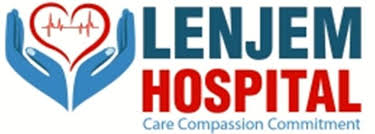
.jpg)












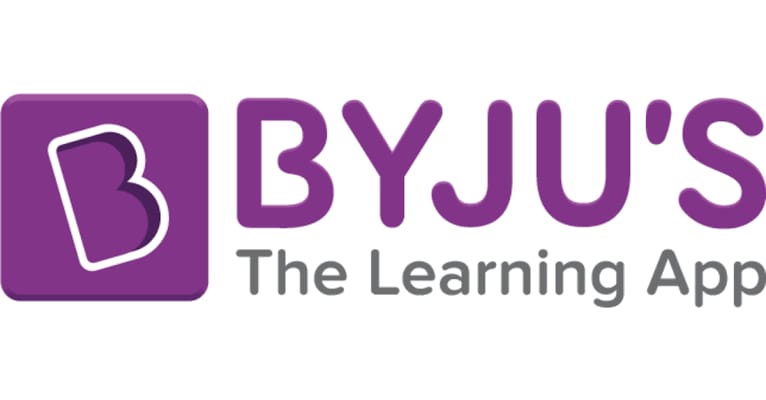


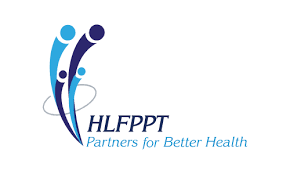






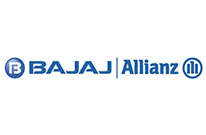


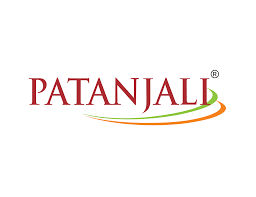









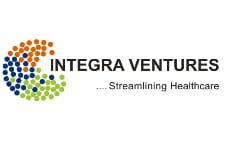












"I am a BBA student of 3rd semester. I hail from Bhutan. I vow that I am having a great experience i...
"AdtU is amazing. I am a BBA student of 2019-22 batch and I am just grateful for the amount of oppor...
Let us be grateful to the people and place who makes us happy. They are the charming gardeners whom ...
Currently I am pursuing MBA in Assam Down Town University. MBA is the professional course through wh...
AdtU is a university that focuses on giving knowledge, education and simultaneously making the stude...
The Assam downtown University has been a great learning experience. The university has provided me w...
My experience with AdtU has been splendid one indeed. Little needs to said about its scenic infrastr...
As a student I am very glad that I have got an opportunity to study here in Assam downtown universi...
My name is Sakhyajit Roy. I?m from Tripura. I joined the university on Auguest, 2017 as a student of...
I share immense pleasure to share my post graduate program experience in Assam down town University....
AdtU is a platform where I got golden opportunities to feed my zeal for knowledge through the dynami...
I am fortunate to get an opportunity to study here in Assam Downtown University. The best thing abou...
Our university is one of the best place for developing ourselves in the field of research and acedem...
ADTU is a university that is very good interms of infrastructure, academics and placements. Our tea...
It is one of best private colleges in North East India, it also provides a good environment for ed...
ADTU is a good University which provides the students with best quality lectures and ensures comfort...
The environment of Assam downtown university is very pleasant.The department of BMLT is very good a...
The university has all the necessary facilities and amenities for students . The classrooms and the ...
Assam downtown University is well recognised all over india. In the ongoing pandemic situation it ha...








